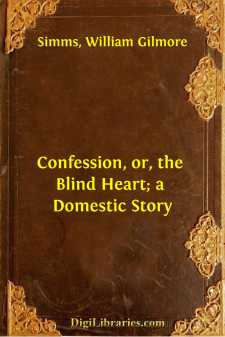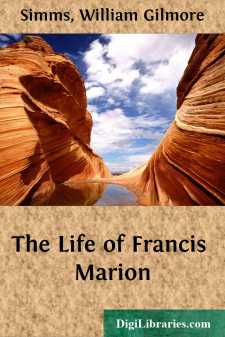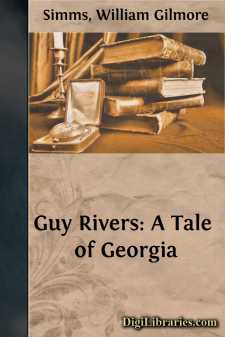Categories
- Antiques & Collectibles 13
- Architecture 36
- Art 48
- Bibles 22
- Biography & Autobiography 813
- Body, Mind & Spirit 142
- Business & Economics 28
- Children's Books 15
- Children's Fiction 12
- Computers 4
- Cooking 94
- Crafts & Hobbies 4
- Drama 346
- Education 46
- Family & Relationships 57
- Fiction 11828
- Games 19
- Gardening 17
- Health & Fitness 34
- History 1377
- House & Home 1
- Humor 147
- Juvenile Fiction 1873
- Juvenile Nonfiction 202
- Language Arts & Disciplines 88
- Law 16
- Literary Collections 686
- Literary Criticism 179
- Mathematics 13
- Medical 41
- Music 40
- Nature 179
- Non-Classifiable 1768
- Performing Arts 7
- Periodicals 1453
- Philosophy 64
- Photography 2
- Poetry 896
- Political Science 203
- Psychology 42
- Reference 154
- Religion 513
- Science 126
- Self-Help 84
- Social Science 81
- Sports & Recreation 34
- Study Aids 3
- Technology & Engineering 59
- Transportation 23
- Travel 463
- True Crime 29
Confession, or, the Blind Heart; a Domestic Story
Description:
Excerpt
CHAPTER I.
Confession, or The Blind Heart.
"Who dares bestow the infant his true name?
The few who felt and knew, but blindly gave
Their knowledge to the multitude—they fell
Incapable to keep their full hearts in,
They, from the first of immemorial time,
Were crucified or burnt."—Goethe's "Faust."
The pains and penalties of folly are not necessarily death. They were in old times, perhaps, according to the text, and he who kept not to himself the secrets of his silly heart was surely crucified or burnt. Though lacking in penalties extreme like these, the present is not without its own. All times, indeed, have their penalties for folly, much more certainly than for crime; and this fact furnishes one of the most human arguments in favor of the doctrine of rewards and punishments in the future state. But these penalties are not always mortifications and trials of the flesh. There are punishments of the soul; the spirit; the sensibilities; the intellect—which are most usually the consequences of one's own folly. There is a perversity of mood which is the worst of all such penalties. There are tortures which the foolish heart equally inflicts and endures. The passions riot on their own nature; and, feeding as they do upon that bosom from which they spring, and in which they flourish, may, not inaptly, be likened to that unnatural brood which gnaws into the heart of the mother-bird, and sustains its existence at the expense of hers. Meetly governed from the beginning, they are dutiful agents that bless themselves in their own obedience; but, pampered to excess, they are tyrants that never do justice, until at last, when they fitly conclude the work of destruction by their own.
The narrative which follows is intended to illustrate these opinions. It is the story of a blind heart—nay, of blind hearts—blind through their own perversity—blind to their own interests—their own joys, hopes, and proper sources of delight. In narrating my own fortunes, I depict theirs; and the old leaven of wilfulness, which belongs to our nature, has, in greater or less degree, a place in every human bosom.
I was the only one surviving of several sons. My parents died while I was yet an infant. I never knew them. I was left to the doubtful charge of relatives, who might as well have been strangers; and, from their treatment, I learned to doubt and to distrust among the first fatal lessons of my youth. I felt myself unloved—nay, as I fancied, disliked and despised. I was not merely an orphan. I was poor, and was felt as burdensome by those connections whom a dread of public opinion, rather than a sense of duty and affection, persuaded to take me to their homes. Here, then, when little more than three years old, I found myself—a lonely brat, whom servants might flout at pleasure, and whom superiors only regarded with a frown. I was just old enough to remember that I had once experienced very different treatment. I had felt the caresses of a fond mother—I had heard the cheering accents of a generous and a gentle father....





